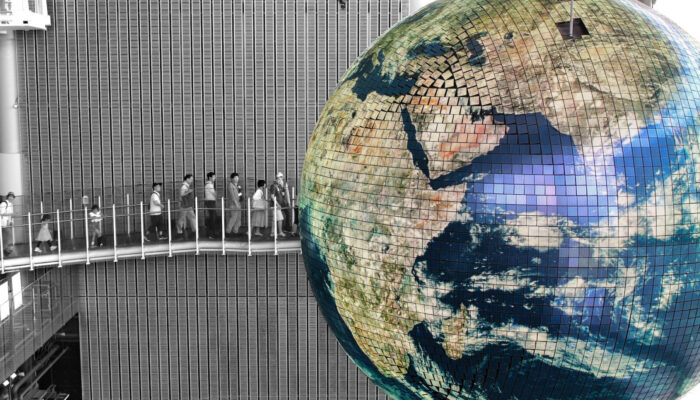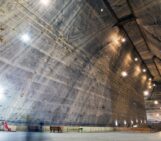
As the air grows crisp and autumn’s colors begin to emerge in many parts of the Northern Hemisphere, I’m reminded that we’re approaching a special time of year for those of us who love the Earth. It’s Earth Science Week (12-18 October 2025), and this year, the theme Energy Resources for Our Future feels incredibly personal. Our lives are powered by energy, and this week is a chance to look a little closer at where it all comes from and what our role is in shaping a more sustainable future.
The truth is, every time you flip a light switch, charge your phone, or start your car, you’re tapping into a resource that was formed by the planet over millions of years. This week is about celebrating the scientists who use their deep knowledge of the Earth to discover, develop, and manage that energy. It’s about understanding that our future energy choices are connected to the ground beneath our feet.
The Earth’s role in our power
Think about the fossil fuels that have powered our world for generations: coal, oil, and natural gas. These weren’t just created out of thin air; they’re the product of ancient organic matter that was buried and transformed by the Earth’s immense heat and pressure over geological time. Geologists and geophysicists have used advanced techniques like seismic imaging to create 3D maps of the subsurface, helping us find and manage these resources. Today, their work extends to crucial innovations like Carbon Capture, Utilization, and Storage (CCUS), a process that relies on our understanding of underground rock formations to safely store carbon dioxide away from the atmosphere.
Then there’s nuclear energy, a carbon-free power source that also has a strong geological foundation. Geologists are the ones who search for and mine uranium deposits, the radioactive element that powers nuclear reactors. They’re also vital for ensuring the long-term safety of nuclear waste (see previous blog on AI and managing nuclear waste here!) by studying the stability of deep underground rock formations, a task that requires a monumental level of foresight.
Our push toward renewable energy has brought geoscience to the forefront. When you see a geothermal power plant, you’re looking at a direct use of the Earth’s own internal heat. Geoscientists explore for these resources by studying heat anomalies and deep fault systems. And even for solar and wind power, geology is essential. The minerals needed for solar panels, wind turbines, and the batteries that store their energy, like lithium, cobalt, and rare earth elements, are all sourced from the Earth. And did you know the Earth itself can act like a giant battery? Geoscientists are exploring how to use the subsurface for large-scale energy storage, like pumped-hydro storage in underground caverns or compressed air energy storage (CAES) in salt domes, which can help us stabilize the grid when the wind isn’t blowing or the sun isn’t shining.
A global community celebrating together
While Earth Science Week is organized by the American Geosciences Institute (AGI), it’s truly a worldwide celebration. Many geological societies, government agencies, and educational institutions plan events to bring this theme to their communities.
You’ll find people taking part in a celebration that crosses borders and languages. From holding the 17th International Green Energy Conference & the 6th International Conference on Energy and AI in Iceland, to a workshop on mineral sourcing in Australia, people are sharing knowledge and sparking new ideas. In Europe, professional organizations are holding conferences on the latest advancements in clean energy technology, while in Canada, groups are hosting events focused on how geoscientists are collaborating with engineers and policymakers to drive the energy transition forward.
Now, it’s your turn!
Earth Science Week is for everyone! I want to encourage you to do something to connect with this year’s theme.
First, take a moment to find out what’s happening in your own community. You can check a local university or natural history museum to see if they’re hosting an event, or see if a nearby geological survey has an open house planned. Next, investigate where the energy you use every day comes from. Look at your utility bill or check a local energy website to see the mix of fossil fuels and renewables that power your home.
You can also look into applying for grants to host your own event, such as this microgrant offered by The Geological Society of London (applications are open!)
And finally, I challenge you to start a conversation. Talk to your family and friends about what you’ve learned. Share it on social media using the official hashtag #EarthScienceWeek.
Our energy future isn’t a distant, abstract concept. It’s something we can all influence. Taking just a small step to learn and engage can become a part of the solution. Share with us your plans to attend or organise an event by emailing media@egu.eu



